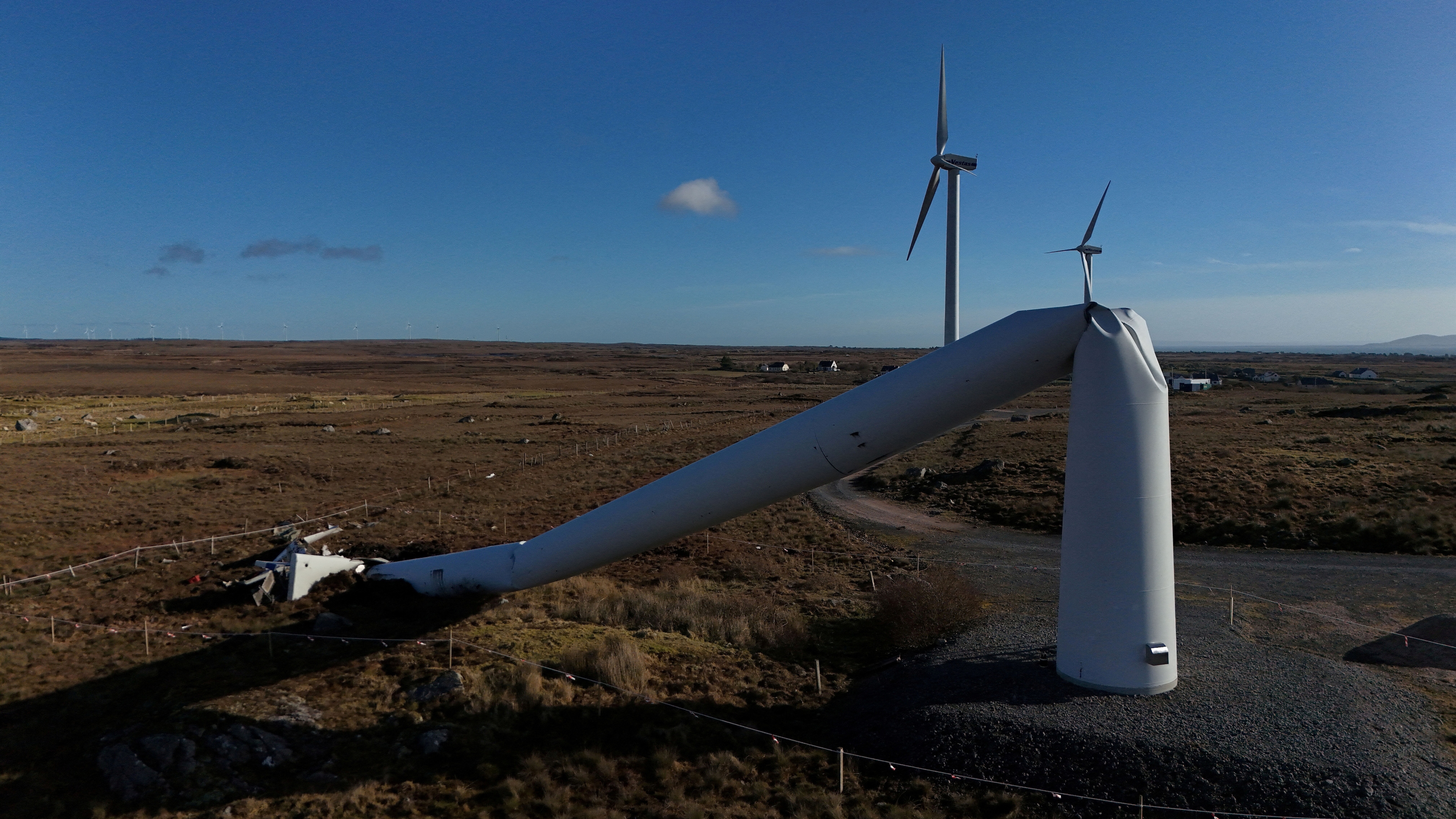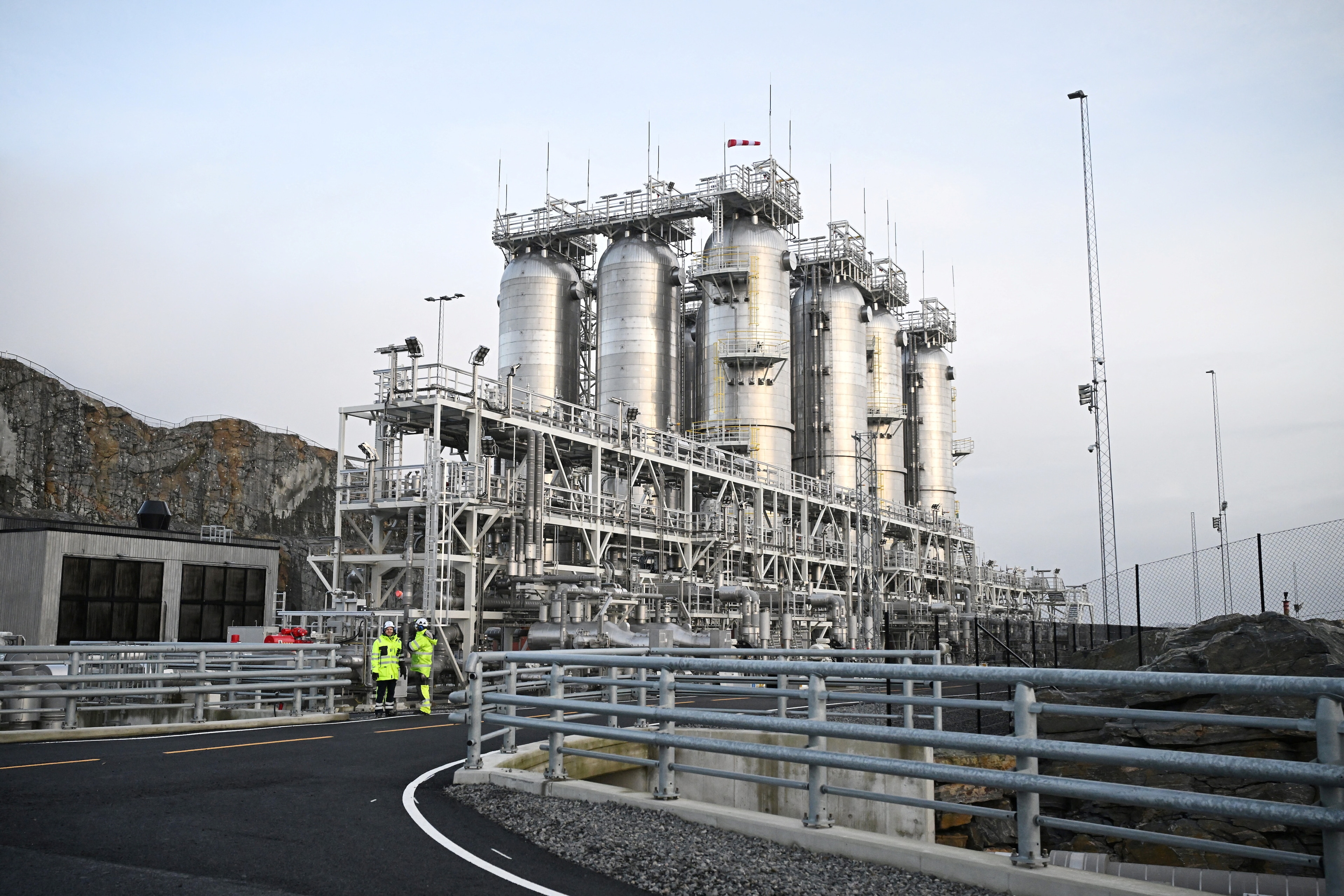Climate Opportunity Map: This interactive tool captures benefits of climate-positive action

The Climate Opportunity Map aims to capture the future benefits of climate action.
Image: Alexander Gard-Murray/Climate Solutions Lab
Stay up to date:
COP28
Listen to the article
- The state of the world is fuelling a mental health 'eco-anxiety' crisis among our children and young people, with heightened calls to protect the future of our planet.
- Alexander Gard-Murray, a postdoctoral research associate at Brown University, hopes people confronting eco-anxiety can find some strength in the growing wave of solutions and success stories.
- He has created an interactive Climate Opportunity Map to capture the future benefits of climate action and how it translates to health and job opportunities for local communities across the United States.
World leaders, climate experts and activists have begun two weeks of talks to discuss climate action at COP27. This year's COP, which stands for Conference of the Parties, is the 27th annual UN meeting on climate and is taking place in Egypt between 6 to 18 November.
There's a lot of ground to cover: the rising sea levels and climate-related disasters, record-breaking temperatures worldwide, food insecurity and the energy crisis, and climate reparations for countries that suffer disproportionately from the negative impacts of climate change.
"Greenhouse gas emissions keep growing. Global temperatures keep rising. And our planet is fast approaching tipping points that will make climate chaos irreversible," Antonio Guterres, U.N. secretary-general, told delegates in his opening remarks. "We are on a highway to climate hell with our foot on the accelerator."
The state of the world is fuelling a mental health 'eco-anxiety' crisis among our children and young people, with heightened calls to protect the future of our planet.
Building optimism with the Climate Opportunity Map
But Alexander Gard-Murray sees reasons for hope.
A postdoctoral research associate at Brown University's Climate Solutions Lab, Gard-Murray remains optimistic in our fight against climate change because he sees "more and more evidence that success is at least possible." This is why he built the Climate Opportunity Map: an interactive tool to capture the future benefits of climate action and, in particular, highlight the local health and job benefits that come with it.

The map currently focuses on opportunities in the United States, with Gard-Murray deriving data and projections listed across academic and government research and then adapting it for local areas. "We can't only talk about how decarbonization is good for the world or the country: we want to talk to people about how it's going to affect them and their community," he says.
"The biggest upside came from reading all these great studies and seeing over and over how big the benefits of climate action are, not just in the far future but right now."
When you visit the site, you can enter any zip code in the US and see estimates of the kind of benefits your area will see if ambitious action on climate change is taken.
"All the estimates are based on existing studies," Gard-Murray explains. " Take renewables jobs, for example. Mark Jacobson and his collaborators project job creation at the state level for different renewable technologies. But to get local estimates, we need to know where in each state different renewables are actually likely to be built."
"Fortunately, the Global Development Potential Indices project has done great work estimating the renewable energy potential for each square kilometre on the planet. By combining those two studies, we can get a reasonable projection of where jobs might end up."
Expanding local knowledge and fighting eco-anxiety
Gard-Murray is aware he still needs to capture all efforts towards climate action, but he aims to expand it as a living document. "There's already growing awareness and coverage of the big benefits of climate action. But it's not always simple to find out what those benefits might be locally."
"Placing it on a website that's simple to use raises the likelihood that a busy journalist, activist, staffer, or regular citizen can get that information."

He also hopes that people confronting eco-anxiety can find some strength in the growing wave of solutions and success stories. "The map tries to capture some of that, but there's so much more out there as the clean energy transition picks up steam," he says.
"We could still easily end up dragging our feet and tipping into irreversible climate damages. But the path to success is clearer than it's been for most of my life."
Accept our marketing cookies to access this content.
These cookies are currently disabled in your browser.
Don't miss any update on this topic
Create a free account and access your personalized content collection with our latest publications and analyses.
License and Republishing
World Economic Forum articles may be republished in accordance with the Creative Commons Attribution-NonCommercial-NoDerivatives 4.0 International Public License, and in accordance with our Terms of Use.
The views expressed in this article are those of the author alone and not the World Economic Forum.
Forum Stories newsletter
Bringing you weekly curated insights and analysis on the global issues that matter.
More on Climate ActionSee all
Michael Fröbel and Stanislas Hillen
August 8, 2025
Elizabeth Henderson and Daniel Murphy
August 8, 2025
De Rui Wong and Keebum Kim
August 7, 2025
Aurora Matteini and Derek Baraldi
August 6, 2025
Tom Crowfoot
August 5, 2025
Sverre Alvik
August 5, 2025





